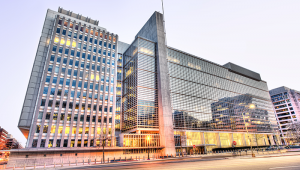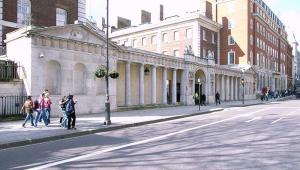Representatives from four African countries have called for a balanced approach to growing debt vulnerabilities in an effort to help low-income countries meet commitments to lenders.
The calls were made at a consultative meeting jointly convened in Abidjan, Cote d’Ivoire, by the African Development Bank and the World Bank.
The discussions about debt sustainability “couldn’t come at a better time”, said Charles Boamah, Senior Vice-President of the AfDB, in his opening remarks.
“It is at the centre of many conversations taking place currently … We here at the African Development Bank are engaged in a couple of very important discussions … a seventh GCI [General Capital Increase] and the fifteenth replenishment of the African Development Fund.”
The public debt profile of most low-income and low middle-income African countries has deteriorated substantially over the past seven years, and twice as many now face severe debt challenges.
In January this year 17 borrowing countries from the International Development Association and the ADF were deemed at high risk of external debt distress or are viewed as being in debt distress – double the number in 2013.
The ministers of finance and economy and representatives from several African countries and development partners at the gathering heard repeated calls for greater diversity in funding.
Adama Koné, Cote d’Ivoire’s Minister of Finance, praised the World Bank and the International Monetary Fund for their assistance but appealed for more “innovative and strategic sources of funding.”
“We want to have CFA-denominated bonds on markets,” he said during a panel discussion, referring to the shared currency of the CFA franc zone of 14 countries in sub-Saharan Africa.
“Since we are not known, we have to pay a premium. If we have a guarantee mechanism, this will allow us to issue those bonds at a lower price.”
Richard Evina Obam, Cameroon’s Minister of Finance, supported the call for broader sources of financing, including funding from the Islamic world.
Boamah said debt management had to take into account investment and development needs, and to reach the Sustainable Development Goals such as health, education and infrastructure, “you need half a trillion US dollars”.
Akihiko Nishio, World Bank Vice President of Development Finance, said the IDA and ADF were working together with a common mission to better address African debt vulnerabilities.
“We need to provide our clients with the resources and support needed to achieve the SDGs.”














